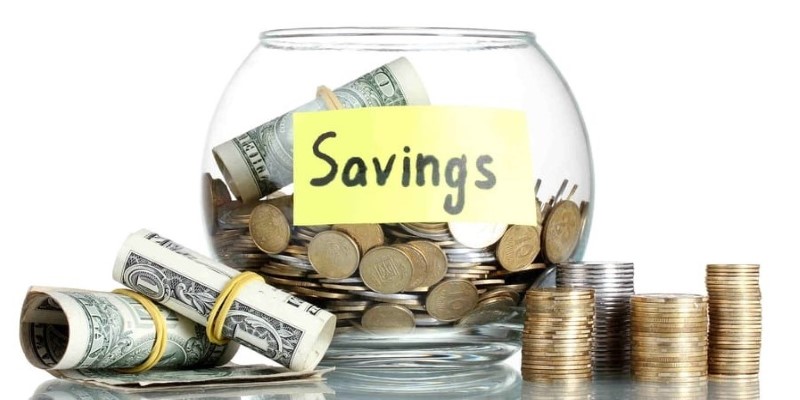Savings Accounts and Spending: What You Should Know in 2024
Sep 15, 2024 By Pamela Andrew
Managing your money wisely is a cornerstone of financial stability, and one common question that often arises is whether you can spend directly from a savings account. At first glance, savings accounts might seem like theyre meant solely for accumulating interest and building your financial cushion. But what happens when you need to dip into those funds for something urgent or unexpected?

In this article, we'll explore how spending from a savings account works, as well as its limitations and benefits, and offer practical advice to ensure you're making the most of your money while keeping your financial goals on track.
Understanding Savings Accounts
A savings account is a type of bank account that allows you to deposit money and earn interest over time. Unlike checking accounts, which are designed for frequent transactions, savings accounts are intended to help you save money over the long term. The interest rate on a savings account is typically higher than that of a checking account, making it an attractive option for storing funds you don't need immediate access to.
Savings accounts are known for their safety and reliability. They are often insured by government agencies, such as the Federal Deposit Insurance Corporation (FDIC) in the United States, up to a certain amount. This insurance ensures that your money is protected even if the bank fails.
Can You Spend From a Savings Account?
Yes, you can spend from a savings account, but there are some important considerations to keep in mind. Savings accounts are not designed for everyday transactions, so they have certain limitations and restrictions. Heres what you need to know:
Withdrawal Limits:
Most savings accounts have limits on the number of withdrawals or transfers you can make each month. For example, federal regulations in the U.S. previously limited savings account withdrawals to six per month, though this regulation was relaxed in 2020. However, banks may still impose their own limits. Exceeding these limits can result in fees or the conversion of your savings account to a checking account.
Access Methods:

To spend money from a savings account, you generally need to transfer the funds to a checking account first. This is because savings accounts usually do not come with check-writing privileges or debit cards, which are commonly used for everyday transactions. Transfers can be done through online banking, over the phone, or in person at your bank.
Fees and Penalties:
Some banks charge fees for excessive withdrawals or transfers from savings accounts. These fees can add up, especially if you frequently need to access your money. Additionally, if you withdraw funds from a savings account that has a balance below the minimum required, you might incur penalties or lose interest earnings.
Interest Impact:
Regularly withdrawing money from your savings account can affect the amount of interest you earn. The less money you have in your savings account, the less interest you will accumulate. This is because interest is typically calculated based on the average daily balance of your account. Frequent withdrawals can reduce your average balance, leading to lower interest earnings.
Pros and Cons of Spending From a Savings Account
Before you decide to use your savings account for spending, its important to weigh the pros and cons.
Pros of Spending From a Savings Account:
Safety: Savings accounts offer a safe place to keep your money, protected by insurance. This safety can be beneficial if you need to access funds for emergencies or other important expenses.
Interest: Your money earns interest in a savings account, helping it grow over time. Even though you may need to transfer funds to spend, the interest earned can still be a benefit.
Discipline: Keeping funds in a savings account can help you manage your spending better. Having to transfer money to a checking account before spending can make you more mindful of your expenses.
Cons of Spending From a Savings Account:
Limited Access: The limitations on withdrawals and the need to transfer funds can be inconvenient, especially if you require immediate access to your money.
Fees: Banks may charge fees for exceeding withdrawal limits, which can reduce the overall benefit of keeping your money in a savings account.
Interest Loss: Frequent withdrawals can lower your average balance, leading to less interest earned. This can diminish the benefits of having a savings account.
Alternatives to Spending From a Savings Account
If you find that spending from your savings account isnt the most convenient option, consider these alternatives:
Checking Accounts: Checking accounts are designed for everyday transactions and offer more flexibility. They come with features like debit cards and check-writing capabilities, making them ideal for regular spending. You can keep a smaller balance in your checking account for daily use and transfer additional funds from your savings account as needed.
Cash Management Accounts: Some financial institutions offer cash management accounts that combine features of both savings and checking accounts. These accounts often provide higher interest rates and easy access to your funds, making them a good alternative for managing both savings and spending.

Money Market Accounts: Money market accounts are another option that provides higher interest rates and limited check-writing capabilities. They can offer a balance between earning interest and having access to your funds.
Certificates of Deposit (CDs): For funds you dont need immediate access to, consider CDs. They offer higher interest rates but require you to lock in your money for a specified term. Early withdrawal can result in penalties, so theyre best for funds you can afford to set aside.
Conclusion
Spending from a savings account is possible, but it comes with certain restrictions and considerations. While savings accounts are excellent for storing and growing your money, their limitations on withdrawals and the potential impact on interest earnings make them less suitable for frequent transactions. Understanding these factors can help you make informed decisions about managing your money effectively.
If you need more flexibility, exploring alternatives like checking accounts or money market accounts might be a better fit for your spending needs. By carefully managing your savings and spending, you can make the most of your financial resources while ensuring you have access to the funds you need when you need them.








